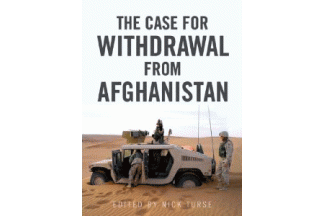Leading commentators examine the Afghan debacle and its parallels with previous British and Soviet occupations.
Known as the graveyard of empires, Afghanistan has now been singled out as Obama’s “just war,” the destination for an additional thirty thousand US troops in an effort to shore up an (…)

The Case for Withdrawal from Afghanistan
Edited by Nick Turse, Verso, 208 p.

